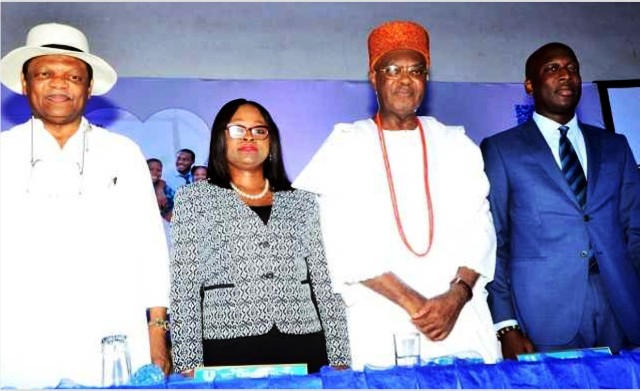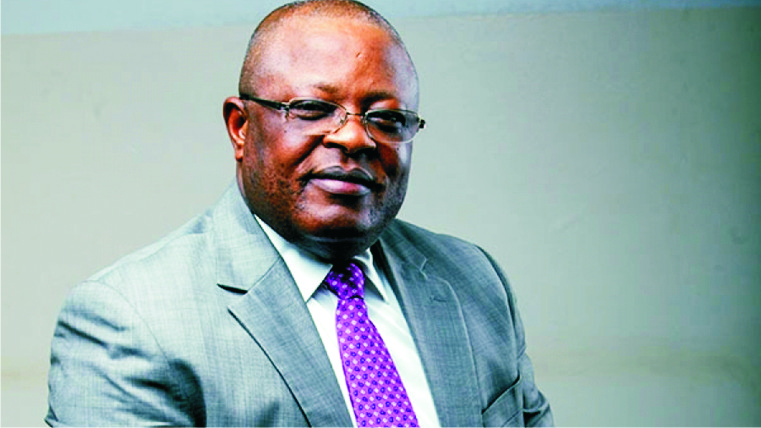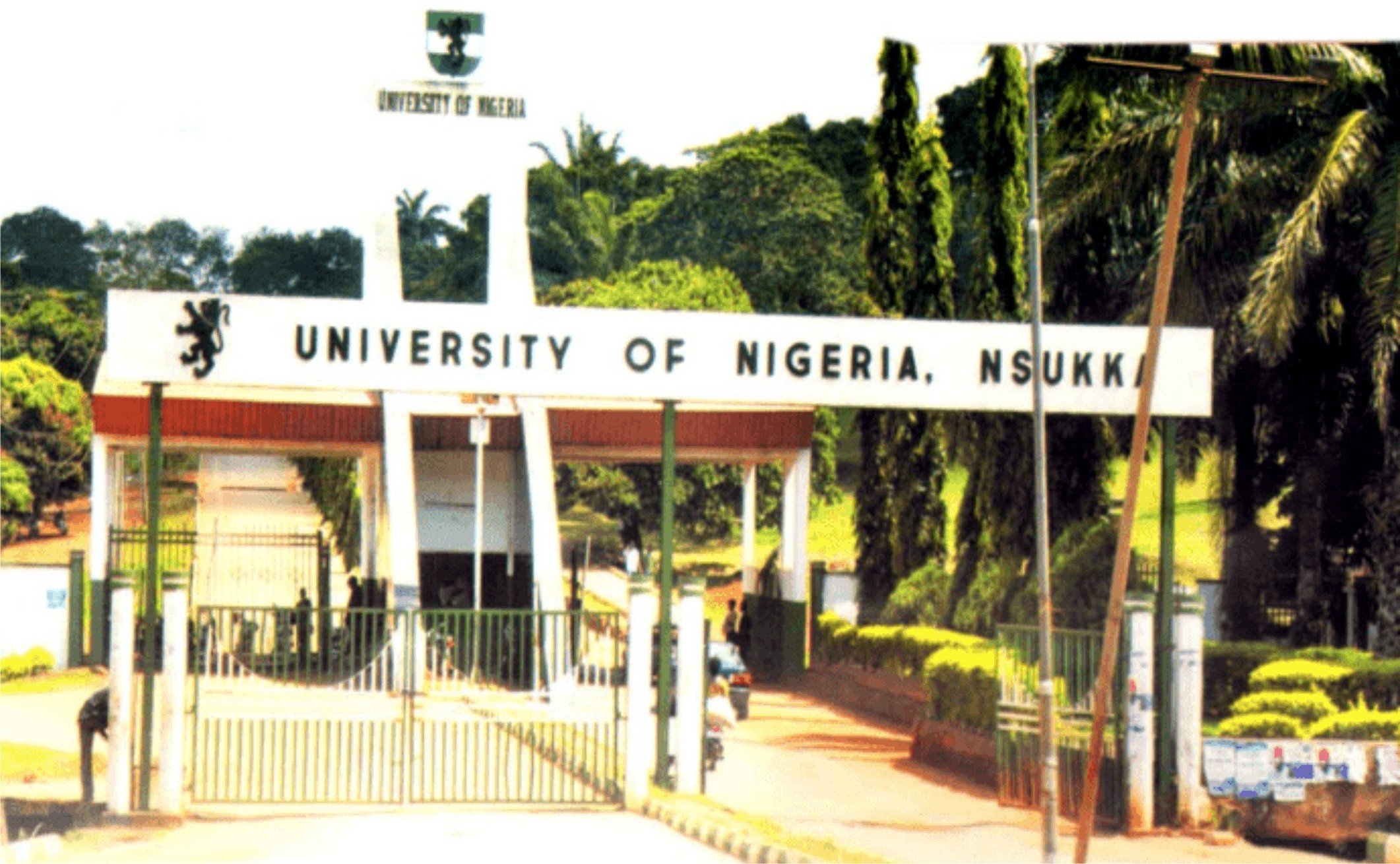Business
Senate To Probe Irregularities In BPP Contracts

The Senate has mandated its Committee on Public Procurement to investigate alleged irregularities in the award of contracts by the Bureau of Public Procurement (BPP).
The committee is to report back to the Senate in five weeks.
The decision followed a motion by the Chairman, Committee on Federal Capital Territory (FCT), Sen. Dino Melaye, at plenary.
According to Melaye, there is monumental corruption going on at the BPP where contracts that are supposed to be awarded at N20 million are awarded at N200 million.
“In line with section 5(Q) of the Public Procurement Act 2007, the BPP is mandated to perform procurement audit and submit such audit to the National Assembly bi-annually,” he said.
Melaye said the BPP had repeatedly failed and neglected to perform “this crucial and statutory duty, particularly for conduct of post procurement audit and submission of reports to the National Assembly bi-annually.“This neglect of duty by the BPP has affected the National Assembly in its constitutional duty of conducting oversight with respect to the application of public funds.
“Based on section 61(C) of the Procurement Act 2007, the Bureau of Public Procurement is authorised to issue Certificate of No Objection to contracts awarded by relevant procurement entities.
“The vesting of the above power on BPP is aimed at ensuring that the letters and spirit of the Public Procurement Act is complied with.
“Government is expected to get value for its money, and contracts awarded are within relevant threshold and has it backed by budgetary allocation.”
The lawmaker said the BPP had consistently engaged in under-hand dealings with respect to the grant of Certificate of No Objection while abusing these powers to make pecuniary gains.
He said that if urgent steps were not taken to investigate the allegation and address proven infractions, the BPP was likely to transform itself from the regulator to a disruptor.
This, according to him, will endanger the entire public procurement system.
Melaye also said that most challenges be-devilling the country were as a result of corruption.
“We have not been able to confront corruption from its root through procurement processes.
“It is time for the Senate to take the bull by the horn and ensure that the BPP does what is right so that social services will be available for the less-privileged.
“The prerogative of government is to ensure that the security and welfare of the people are guaranteed.”Seconding the motion, Sen. Shehu Sani said that corruption and anti-corruption had become household names in Nigeria.
Sani said that the BPP was one of the institutions created with the aim to check the processes of contracts award and transactions by governments.
“But, it is unfortunate that in spite of our efforts to address the problem of corruption in this country, it is becoming clear that things have not changed.
“Corruption is perhaps being focused on members of the National Assembly and the Executive.
“We have public office holders, particularly civilservants, we have become contractors. We have to bring practical steps that will cleanse the BPP,” he said.
According to him, the BPP has been unable to address the problems that have to do with procurement in Nigeria.
“It is very much impossible for Nigeria to attain any enviable height as an industralised nation once our system makes it possible for individuals to enrich themselves and impoverish the country.”
The lawmaker called on the Federal Government not to only proclaim its commitment to fighting corruption, but to also see it practically.
Similarly, Sen. Matthew Urhoghide (PDP-Edo) said that in spite of all attempts to check corruption, much had not been achieved.
According to him, to checkmate corruption, there is a need for lawmakers to come with laws that are practicable.
In his remarks, Deputy President of the Senate, Mr Ike Ekweremadu, who presided at plenary, said “as parliamentarians, we have the responsibility to make laws that will reduce corruption and ensure that these laws are implemented.
Business
Telcos Fear Shutdown As Lagos-Calabar Highway Construction Threatens Cables

Barely 48 hours after Multichoice alerted subscribers to a three-day technical downtime, telecommunication companies have expressed concern over possible connectivity disruptions as construction advances on the 700km Lagos-Calabar Coastal Highway.
While the DStv and GOtv owner acknowledged the anticipated impact of the ongoing Lagos-Calabar construction project on their uplink facilities, telcos have expressed broader concerns emphasising the vital role of telecommunication service and the effect of possible anticipated technical disruption.
The Lagos-Calabar coastal highway corridor serves as a crucial landing point for multiple submarine cables connecting Nigeria to Europe
The cables, including the West Africa Cable System (WACS), MainOne, Glo1, ACE, and NCSCS, are vital for international communications and data transmission in the country.
The Federal Executive Council approved Phase One of the ambitious 700-km Lagos-Calabar coastal highway project in February, entrusting the task to Hitech Construction Company Limited.
The highway project was designed to connect Lagos to Cross River, passing through the coastal states of Ogun, Ondo, Delta, Edo Bayelsa, Rivers, and Akwa Ibom, before culminating in Cross River.
The demolition of numerous properties and recreational centres in Lagos has been carried out to expedite the construction of the highway.
In the light of the developments, telcos stressed the necessity of stakeholder consultations with the Ministry of Works to address potential risks and implement robust mitigation measures.
While dialogue with the Federal Government is yet to happen, telcos have warned Hitech Construction to exercise caution to prevent damage to critical national infrastructure.
Speaking to newsmen, the Chairman of the Association of Licensed Telecom Operators of Nigeria (ALTON), Gbenga Adebayo, confirmed that the Ministry of Works had yet to engage the telcos on environmental impact assessment.
The ALTON Chairman said the Ministry of Works, headed by David Umahi, had engaged some stakeholders but excluded the telecom operators.
“The Ministry of Works has not approached us, and I’m unsure if environmental impact assessments have been conducted. The route is crucial for the landing of numerous submarine cables, so caution is essential.
“Some members have reached out to them, urging caution. As the Chairman of the industry, I can affirm that ALTON members were not consulted regarding the assessment of the undersea cable within that right of way”, he explained.
Adebayo revealed that some of its members had written to the works ministry on the matter over the need for a dialogue. He, however, said the body had yet to get any response.
He added that the Nigerian Communications Commission (NCC) had been engaged to facilitate talks with the ministry.
“We’ve informed the Nigeria Communications Commission about this issue, and they are attempting to contact the Ministry of Works. However, I can confirm that neither we nor any of our members were contacted. This is on record. We were not included in the stakeholder consultations, and we’re concerned about the actions being taken”, he stated.
Business
Vets Make Case For Massive Investments In Agric Technology

Veterinary doctors have tasked governments at all levels and stakeholders to drive the agricultural sector with innovative and technological investments to upscale food production and boost food security.
President, Faculty of Veterinary Medicine, University of Nigeria, Nsukka, Alumni Association, Prof Lawrence Aka, made the call in an event in Abuja, following the current excruciating hunger and hardship Nigerians are grappling with.
In the event, which was focused on “Adopting Technological Innovations in Veterinary Practice, Livestock Production and General Agricultural Practices for Food Security, Economic Growth, Poverty Alleviation, Youth Employment and National Security”, Aka noted that agriculture, which is the backbone of human civilization, is at a crossroads, particularly in Nigeria.
According to him, agriculture is faced with challenges such as climate change, population growth, and diminishing natural resources, hence the need to reimagine and reinvent better ways to cultivate lands to improve national economy to nourish the people.
“The solution lies in innovation – leveraging technology to transform agriculture into a more sustainable, efficient, and productive sector.The subject of our discussion today is one that sits at the nexus of our survival and prosperity: ‘The adoption of innovative technology in agricultural production as a catalyst for economic growth and a pillar of national security’.
“In an era marked by rapid technological advancement, and our unique agricultural potential, agriculture remains the cornerstone of our economic stability and sustenance. Yet, it faces unprecedented neglect and challenges from climate change, population growth, resource depletion and lack of political will for its development.
“To navigate these challenges, we must pivot towards innovation and technology. This transition is not just an opportunity for growth but a necessity for our survival as a developing nation.
“There is no doubt that the current state of agriculture in our country does not match the potential it has in revamping all aspects of our existence as it relates to our economy, food security, youth empowerment, poverty alleviation and national security.
“The theme of this symposium has been chosen in recognition of the need for a diversification of our national economic agenda through an embrace of innovative and technologically-driven agricultural practices.
“Nigeria is uniquely blessed with enormous factors that positively drive abundant food production for local consumption and export.
“Unfortunately, this has hitherto been neglected to the detriment of improved economy, poverty alleviation, food sufficiency and national security hence the existing unimaginable level of poverty and youth unemployment. There is no dishonor in a country being poor.
Business
Aviation Experts Chat Way For Sector’s Advancement
Experts in aviation under the auspices of Aviation Safety Roundtable Initiative (ASRTI) havae urged President Bola Tinubu to suspend taxes, tariffs and endless charges hindering development of the aviation industry in the country.
The Aviation Roundtable (ART) also called on Tinubu to initiate policies that would address airlines’ survival and growth with a view to lowering the swift increase in domestic airfares.
In a statement released at the end of its Business Meeting in Lagos, the ART President, Air Comdr. Demola Onitiju (rtd), called on the Minister of Aviation and Aerospace Development, Mr. Festus Keyamo, to constitute governing boards for the Nigerian Civil Aviation Authority, (NCAA), and other agencies in the sector.
“The ART has been a consistent advocate of NCAA’s autonomy consistent with the Act establishing it and global best practices. We do this to ensure that it is adequately insulated from short-term political pressure.
“In the Nigerian circumstances, the NCAA is expected to be both benign and harsh in its spontaneous enforcement of standards and rules to retain our trust.
“In order to create a conducive environment for aviation and tourism to thrive, the ART urges the renewed hope agenda of President Bola Tinubu to initiate deliberate policies to review and suspend taxes, tariffs and charges (within a given time frame) in order to bring succour to aviation and allied businesses in Nigeria.
“Such policies should address airlines survival and growth with a view to lowering the recent astronomical increase in air fare on the domestic scene.
“The Consumer Rights Protection directorate in the NCAA should live up to its billing in ensuring maximum comfort and compensation for the traveling public promptly where infractions are established”, he stated.
Corlins Walter
-
Sports5 days ago
RSG Set To Host School Sports Competition Soon
-

 Niger Delta5 days ago
Niger Delta5 days agoHYPREP Interfaces With Ogoni Church Leaders
-
Rivers3 days ago
IAUE Promotes 51 Staff To Professors, Associate Professors
-
News3 days ago
Protesters Storm Police Headquarters, Demand Journalist Ojukwu’s Release
-

 Sports5 days ago
Sports5 days agoRSG Set To Host School Sports Competition
-

 News4 days ago
News4 days agoMonarch Recommits To Peace, Devt Of Ekpeye Land
-
Entertainment3 days ago
‘Safety Is Responsibility Of AGN, Actors’
-
Business3 days ago
SMEs Experts Applaud Fubara’s N4bn 3,066 MSMEs Empowerment

